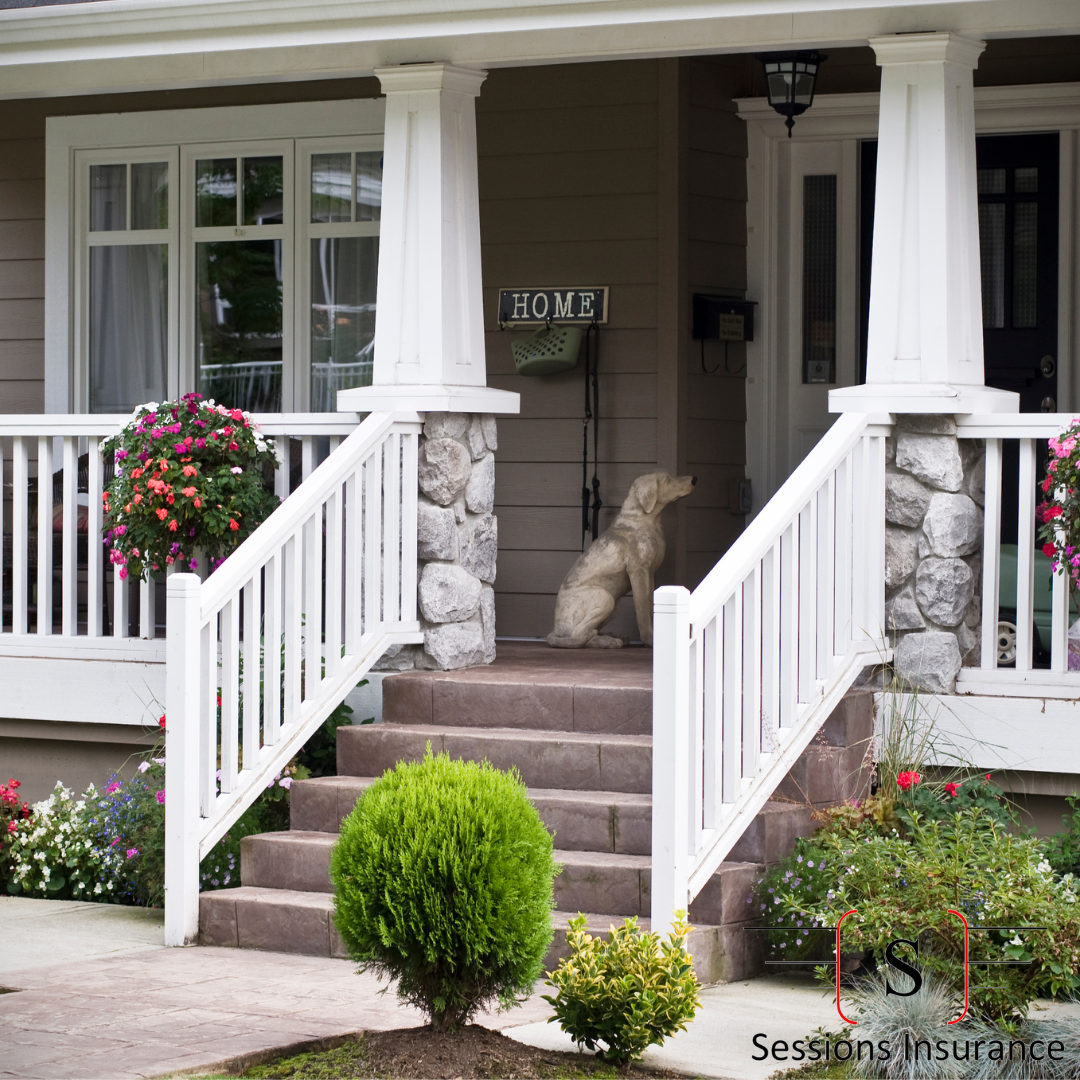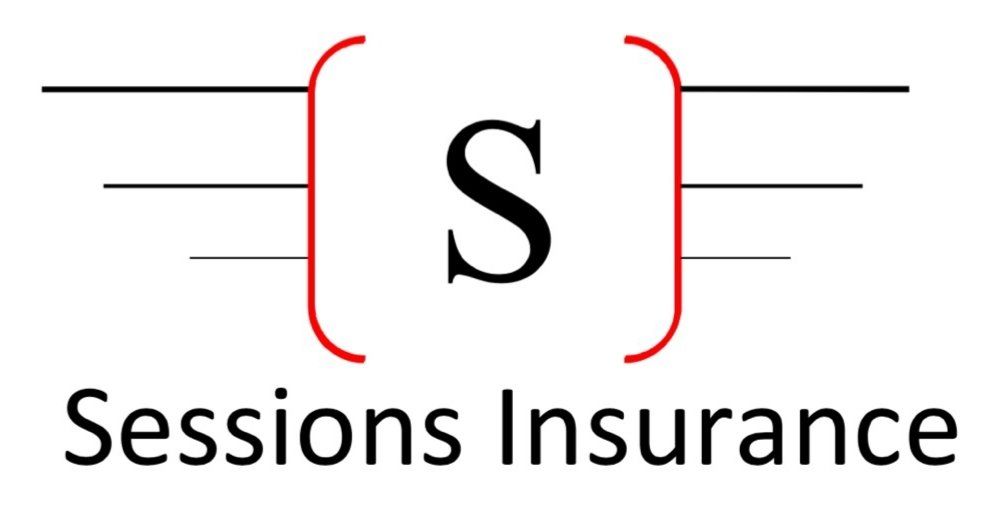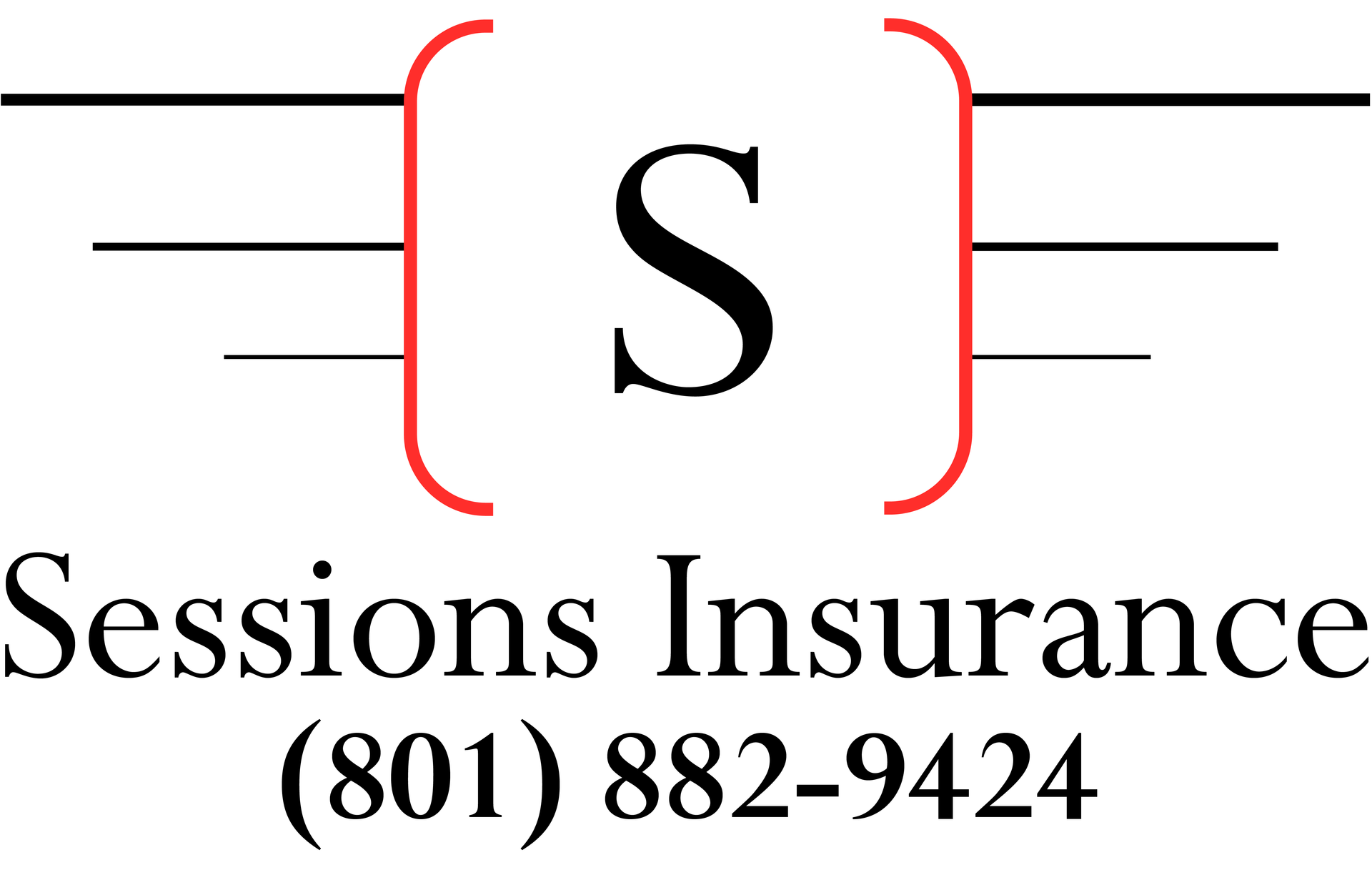Blog

How Sessions Insurance Helps You Save Money With Teen Drivers Adding a 16 year old driver to your policy can feel expensive—but it doesn’t have to be. At Sessions Insurance, we specialize in helping families find cheap insurance for teen drivers without sacrificing coverage. Whether you’re shopping for Ogden teen drivers insurance or comparing options across Utah, our independent-agency model, smart discounts, and personalized guidance can significantly lower your costs. Why Insurance Costs Rise With Teen Drivers Limited driving experience increases risk in the eyes of insurers. Certain vehicles and coverage choices can inflate premiums unnecessarily. Many families aren’t aware of all the teen-specific discounts available. How Sessions Insurance Cuts Costs For Families With Teen Drivers Independent market access We’re not tied to a single carrier. We quote multiple top-rated companies to find the best blend of price and protection for a 16 year old driver. Markets change often; we re-shop at renewal to keep your rates competitive. Teen-focused discounts We identify and stack every discount your teen qualifies for: Good Student: GPA threshold or Dean’s List/Honor Roll Driver Training: State-approved courses and defensive driving Safe-Driving/Telematics: App or plug-in programs that reward careful habits Student Away at School: For teens who live far from home without a car Multi-Vehicle and Multi-Policy: Bundle home, renters, or life for extra savings Vehicle match strategy We help you choose the right car for your teen: Prioritize models with strong safety ratings and affordable parts Avoid unnecessary performance packages that spike premiums Consider higher deductibles to lower monthly cost (balanced with your budget) Coverage that protects—and saves Cheap insurance for teen drivers shouldn’t mean risky gaps. We tailor: Liability limits that protect your assets Medical and uninsured/underinsured motorist coverage Collision and comprehensive options with smart deductibles Roadside assistance and rental reimbursement where it makes sense Local expertise for Ogden teen drivers insurance Utah roads, seasons, and traffic patterns matter. Our Ogden-based team understands local rating factors, preferred carriers in Weber and Davis counties, and how to structure policies for teen drivers in northern Utah. You get real guidance, not guesswork. Proven Ways To Lower Your Teen’s Premium Enroll in a certified driver’s ed program before licensure Submit report cards each term to maintain Good Student discounts Install and use the carrier’s safe-driving app for immediate credits Bundle home/renters with auto to unlock multi-policy savings Choose a safe, modest vehicle with modern safety tech Review mileage—if your teen drives less, you may qualify for low-mileage rates Ask us to re-market your policy annually or after big life changes Common Questions We Hear How much does adding a 16 year old driver increase my premium? It varies by carrier and vehicle, but we routinely reduce the initial impact by shopping multiple companies and layering discounts. Can my teen get coverage as a primary driver of an older car? Yes. Assigning your teen to the most cost-effective vehicle on the policy is one of the easiest ways to control costs. Do telematics programs really help? For many families, yes. Safe-driving apps can deliver immediate and renewal-based savings, especially for new drivers building a clean record. Why Choose Sessions Insurance Independent and client-first: We work for you, not one carrier. Teen-driver specialists: We know the discount rules and how to stack them. Ongoing service: We monitor renewals, update discounts, and support claims. Local trust: A dedicated Ogden team ready to help by phone, text, or in person. Get A Free Quote Today If you’re comparing options for teen drivers or seeking Ogden teen drivers insurance, let Sessions Insurance do the heavy lifting. We’ll shop multiple carriers, maximize discounts, and tailor coverage for your family’s needs—often delivering surprisingly cheap insurance for teen drivers without cutting corners. Contact Sessions Insurance to start your teen driver quote: Call: 801-882-9424 Email: Haydn@sessionsinsurance.com Website: www.sessionsinsurance.com Set your 16 year old driver up for safety and savings. We’ll help you navigate every step.

Utah Earthquake Insurance: Why It Matters and How Sessions Insurance Helps Ogden Families When most people think about Utah, they picture the Wasatch mountains, ski trips, and red rock adventures—not earthquakes. But if you live along the Wasatch Front, especially in communities like Ogden, you’re sitting right next to one of the most active and potentially dangerous fault lines in the United States. That’s why earthquake insurance isn’t just a “nice to have” in Utah—it’s a serious piece of financial protection. And it’s also why working with a local, independent agency like Sessions Insurance can make all the difference. Why Utah Homeowners Should Think Seriously About Earthquake Insurance 1. Standard Home Insurance Usually Does Not Cover Earthquakes This surprises a lot of people. A typical homeowners or renters policy covers fire, wind, theft, and some types of water damage—but ground movement (like an earthquake, land shift, or sinkhole) is usually excluded. If a major quake hits and your foundation cracks, walls collapse, or your home shifts off its base, a standard homeowners policy will most likely not pay for those repairs unless you’ve added earthquake coverage. 2. The Wasatch Fault Is a Real Threat The Wasatch Fault runs roughly from Brigham City down to central Utah County—and Ogden sits right in this zone. …seismologists estimate there is a strong chance of a significant earthquake (magnitude 6.0–7.5) along the Wasatch Fault in the coming decades. For Ogden homeowners, that means: Older brick homes are especially vulnerable Unreinforced foundations and chimneys can crumble Even newer construction can suffer serious structural and cosmetic damage Without proper coverage, those repair costs come straight out of your pocket. 3. Earthquakes Can Trigger Other Costly Problems Quakes don’t only crack walls and foundations. They can also: Rupture gas lines, causing fires Break water lines, causing flooding and mold Damage driveways, sidewalks, and landscaping Make your home temporarily unsafe to live in An earthquake policy can help with more than just the structure itself—it can also help with the cost of living elsewhere while your home is repaired, depending on your coverage. What Does Earthquake Insurance Typically Cover? Policy details vary by company, but earthquake insurance for Utah homeowners often includes: Dwelling Coverage Helps repair or rebuild your home if it’s damaged by an earthquake. This can include your foundation, walls, roof, and attached structures like an attached garage. Personal Property Coverage Helps replace or repair personal belongings damaged by the quake, such as furniture, electronics, keep writing …appliances, décor, and clothing. Some high-value items may need special coverage limits. Loss of Use / Additional Living Expenses If your home is unsafe to live in after a quake, this can help pay for hotel stays, short-term rentals, and some extra food and transportation costs while repairs are being made. Other Structures Coverage can extend to detached garages, sheds, and other structures on your property, depending on the policy. Most earthquake policies have a percentage-based deductible (often 5–20% of your home’s insured value), which means you’re responsible for a portion of the loss. A local agent can show you different deductible options and how they affect your premium. Why Earthquake Risk Is Different in Ogden, Utah Ogden has a mix of historic homes and newer construction, each with unique earthquake risks: Older brick homes and historic properties may lack modern seismic reinforcement and can be more prone to severe damage or collapse. Homes on slopes or near canyons may be more vulnerable to ground shifting and landslides. Newer homes may be built to better codes but are still at risk of costly damage to interiors, foundations, and utilities. Because Sessions Insurance is local to Utah and familiar with Ogden neighborhoods they understand how these local factores affect both your risk and your coverage needs. How Sessions Insurance Helps You Get the Right Earthquake Coverage 1. Local, Utah-Focused Guidance Sessions Insurance isn’t a random call center in another state. They live and work where you do, right here along the Wasatch Front. That matters because: They understand Utah building styles and local codes They know which carriers are competitive in Weber County and Ogden specifically They stay up to date on changes in earthquake products and pricing in our area Instead of guessing, you get advice from people who know what a Wasatch Fault event could realistically look like for your home and neighborhood. 2. Independent Agency = More Options for You Sessions Insurance is an independent insurance agency , which means they’re not tied to just one company. They can: Shop multiple top-rated carriers for earthquake coverage Compare different deductible levels and coverage options Help bundle your homeowners and earthquake coverage when possible Look for discounts and policy structures that make sense for your situation You’re not stuck with a single “take it or leave it” quote. You get choices. 3. Tailored Coverage for Ogden Homes Every home is different. Sessions Insurance can help you fine-tune: Dwelling limits to more accurately reflect today’s rebuild costs in Weber County, not what you paid years ago Personal property limits so your belongings are reasonably protected Loss of use coverage so you’re not scrambling to pay for temporary housing Deductible choices that balance affordability and protection They’ll walk through your current homeowners policy with you, identify gaps related to earthquakes, and suggest practical ways to fill them—without over-insuring or overspending. Common Questions About Earthquake Insurance in Utah “Is earthquake insurance really worth it in Ogden?” If you have significant equity in your home, the question is usually: Could you afford to rebuild or do major repairs out-of-pocket? Could you pay the mortgage on a damaged home and pay rent somewhere else? For many Ogden families, the answer is no—so earthquake coverage becomes a key part of long-term financial security. “Is it really that expensive?” Cost depends on factors like: Home age, construction type, and location Coverage amount and deductible The carrier and policy structure Sometimes a slightly higher deductible can make premiums surprisingly reasonable. Sessions Insurance can quickly quote several options so you can see the price difference side by side. “Can I add it to my current policy?” In some cases, earthquake coverage can be **added as an endorsement** to your existing homeowners policy. In other cases, it’s written as a separate standalone policy . Sessions Insurance can review your current carrier and policy and let you know: Whether an endorsement is available Whether a separate earthquake policy might be better or cheaper How each option would work at claim time Why Work With a Local Ogden Agency Instead of Doing It Yourself Online? You can find generic info online, but earthquake coverage is very state- and region-specific. When you work with a local agency like Sessions Insurance, you get: Real explanations in plain language instead of confusing insurance jargon Local market knowledge about what’s typical for Ogden homes like yours Help at claim time , not just at purchase time And because they’re independent, their job is to match you with the right company and coverage—not to push a one-size-fits-all policy. What to Do Next if You’re in Ogden, Utah If you own a home, townhome, condo, or even rent in or around Ogden, now is the time to at least explore your earthquake options—before the ground starts shaking. Here’s a simple starting checklist: Pull out your current homeowners or renters policy. Check if there’s any mention of earthquake or coverage. In most cases, it will say earthquakes (or “earth movement”) are excluded. Make a quick home inventory. Walk through your home, take photos or video of your belongings, and estimate what it would cost to replace the big stuff: furniture, electronics, appliances, clothing, tools, etc. Think honestly about your savings and equity. If a major quake made your home unsafe, could you afford to: Pay for major repairs or a rebuild? Cover rent or hotel costs for months? Replace key belongings out-of-pocket? Reach out to Sessions Insurance for a local quote and review. Ask them to: Review your current homeowners/renters policy for gaps Provide earthquake coverage options with different deductibles Explain, in plain terms, what each option would and wouldn’t cover Protect Your Ogden Home Before the Next Big Quake Living along the Wasatch Front means earthquakes are not a remote possibility—they’re a matter of “when,” not “if.” Earthquake insurance helps protect the equity you’ve built in your home and your family’s ability to bounce back after a major event. Sessions Insurance is here in Utah, serving Ogden and the surrounding communities, and can help you: Understand your actual earthquake risk See clear, side-by-side coverage and pricing options Choose a plan that fits your budget and your home Have a local advocate if you ever need to file a claim If you’re in Ogden, Utah, don’t wait for the next tremor to start asking questions. Reach out to Sessions Insurance, schedule a quick policy review, and find out exactly what it would take to add earthquake protection to your coverage. A few minutes now can make the difference between a temporary setback and a financial disaster when the Wasatch Fault finally moves.

Where you live in Utah matters just as much as what you drive or the age of your roof. Insurers price risk by ZIP code using local data—claim frequency, repair costs, weather patterns, crime rates, traffic density, and even building codes. That’s why premiums in Ogden and Salt Lake City often run higher than in smaller or more suburban communities like Layton and Syracuse. How ZIP Codes Affect Auto Insurance Traffic density and accidents: More cars = more collisions. SLC and Ogden have higher traffic volumes, complex intersections, and more commuters, which drives up claim frequency and bodily injury costs. Theft and vandalism rates: Urban areas typically see higher auto theft and break-in rates. Comprehensive coverage is priced up accordingly. Repair and medical costs: Urban centers tend to have higher labor rates, medical costs, and litigation rates, all of which factor into premiums. Garaging and parking: Street parking and dense housing correlate with more claims than garages and driveways common in smaller towns. How ZIP Codes Affect Home Insurance Crime and liability: Higher burglary and vandalism rates in cities raise premiums for HO policies. Fire protection class: Proximity to fire stations, hydrants, and department ratings matter. Many rural areas have longer response times—but some suburban areas like Layton and Syracuse benefit from strong municipal services that keep losses down versus dense urban cores. Weather and Cat Risk Differences Wind/hail and winter storms: The Wasatch Front sees microclimate swings. Some ZIPs up the bench or canyon-adjacent log more wind/hail and snow-load claims. Urban heat islands also impact freeze/thaw pipe losses. Wildfire and smoke: Urban-wildland interfaces near foothills may rate higher for fire risk and require defensible space or special deductibles. Flooding and water backups: Local drainage, soil, and elevation differences change water-loss patterns street by street. Some areas need sewer backup endorsements or separate flood policies. Why Ogden and Salt Lake City Often Cost More Higher claim frequency from congestion and more complex traffic patterns Elevated theft/vandalism rates and glass claims Higher repair, medical, and legal costs More multi-family and street parking vs. garages Older housing stock in some neighborhoods, raising fire and plumbing risk Why Layton and Syracuse Can Be Lower Lower traffic density and fewer severe accidents More garage parking and newer housing stock with updated wiring/roofs Comparable fire protection with fewer urban crime exposures Fewer comprehensive losses per 100 vehicles/homes For homes: Increase wind/hail deductible if appropriate, install monitored alarms, water-leak sensors, and impact-resistant roofing; document updates (roof, wiring, plumbing, HVAC); add sewer backup where needed. Bundle smartly: Bundling home + auto can cut 10–25%, but compare standalone options—bundles aren’t always the cheapest in every ZIP. Right-size coverage: Ensure replacement cost is accurate; adjust liability limits and deductibles to your risk tolerance and cash reserve. Credit and claims hygiene: Maintain strong credit, avoid small claims, and complete recommended repairs to keep loss history clean. Shop timing: Rates change. Re-quote at renewal or after life events (move, driver turns 25, roof replaced, telematics discount earned). How Sessions Insurance Helps Local insight: We know the ZIP-by-ZIP patterns across the Wasatch Front—from downtown SLC to Ogden, Layton, and Syracuse—and which carriers price them fairly. Market access: We quote multiple top insurers at once (regional and national) to match each ZIP’s risk profile with the carrier that likes it best. Personalized strategy: We’ll structure deductibles, endorsements (e.g., sewer backup, equipment breakdown), and safe-driver programs to fit your address and budget. Ongoing advocacy: If rates jump due to a carrier’s filing or a move, we proactively reshop and pivot you to a better-fit company—without you restarting from scratch. Next Steps Get a free ZIP-specific quote comparison from Sessions Insurance. Send us your address, current coverages, and any recent updates (roof, drivers, telematics). We’ll return a side-by-side breakdown with savings opportunities and coverage gaps. Questions or ready to compare? Contact Sessions Insurance at (801)882-9424 or request a quote online. We’ll help you find the right company for your Utah ZIP—whether you’re in downtown Salt Lake, Ogden, Layton, or Syracuse.

The Importance of Adding Teen Drivers to Your Insurance and How Sessions Insurance Can Help You Save
The Importance of Adding Teen Drivers to Your Insurance and How Sessions Insurance Can Help You Save As a parent, one of the pivotal moments is watching your teen gain the independence that comes with a driver's license. However, one critical step that should not be overlooked is adding your teen driver to your car insurance policy. Here’s why it is crucial and how Sessions Insurance can make this transition smoother, especially if you're in Ogden, South Ogden, Layton, or Syracuse, Utah. Why You Should Add Your Teen Driver to Your Insurance Legal Requirements: Most states, including Utah, require all drivers to have valid car insurance. By adding your teen to your policy, you ensure they are legally covered when behind the wheel. Financial Protection: Teen drivers are statistically more likely to be involved in accidents due to inexperience. Having them on your policy provides an umbrella of coverage that can protect against significant out-of-pocket expenses. Building a Good Driving Record: Starting insurance coverage early helps teens build a driving record, which can be beneficial when they seek their insurance policies in the future. A good record can lower insurance rates over time. Peace of Mind: Knowing your teen is covered allows peace of mind whenever they drive, knowing they are protected in unforeseen circumstances. How Sessions Insurance Can Help Sessions Insurance specializes in making sure you have the right coverage while offering potential savings, a crucial benefit for families with teen drivers in Utah. Here's how: Cheap Car Insurance for Teen Drivers: Sessions Insurance is keen on helping families in Ogden, South Ogden, Layton, and Syracuse find affordable options. We work with various insurers to compare rates and benefits, helping you secure the most cost-effective policy. New Drivers Car Insurance: Our experts understand the challenges new drivers face and tailor insurance packages to suit their needs effectively. We focus on ensuring adequate coverage without over-insuring your teen, keeping premiums manageable. Good Student Discounts: Sessions Insurance actively searches for policies that offer good student discounts. Teens maintaining good grades in school can significantly lower their insurance premiums, making it easier on your budget. Understanding Coverage Needs: Our team simplifies the often complex landscape of insurance. We provide insights into what types of coverage—such as liability, collision, and comprehensive—are essential for your family, ensuring you are neither under-protected nor overpaying. Conclusion Adding your teen driver to your insurance policy not only ensures legal compliance and protection but also promotes good financial habits for future independent policy handling. Sessions Insurance is committed to helping Utah families navigate these decisions affordably and knowledgeably. Whether you’re seeking cheap car insurance for your teen or trying to understand the nuances of new drivers' coverage, our personalized service is designed to meet your needs and help you save money. Contact Sessions Insurance today to learn more about how we can support your family's insurance needs.

If you’ve shopped for auto insurance in Utah — whether you’re in Ogden, Layton, or elsewhere — you’ve probably seen ads promising “cheap full coverage car insurance.” It sounds simple: pay a little more, get everything covered. But “full coverage” is a marketing phrase, not a standardized insurance product. Here’s what the term actually means, what it typically includes (and excludes), and how to choose the right coverage for drivers in Utah. What people mean by “full coverage” “Full coverage” generally refers to a combination of policies and coverages that go beyond Utah’s minimum liability requirements. Common components sellers pack under that label include: Liability insurance (Bodily Injury and Property Damage): Covers injuries and property damage you cause to others. Utah requires minimum liability limits, but “full” packages often increase those limits. Collision coverage: Pays to repair or replace your vehicle after an accident with another vehicle or object, regardless of fault (after your deductible). Comprehensive coverage: Covers non-collision damage such as theft, vandalism, fire, flood, or hitting an animal. Uninsured/Underinsured Motorist (UM/UIM): Pays for your injuries (and sometimes vehicle damage) if an at-fault driver lacks sufficient coverage. Medical Payments (MedPay) or Personal Injury Protection (PIP): Helps pay medical bills after an accident (availability/requirements vary by state). Optional extras: Rental reimbursement, roadside assistance, gap insurance, higher deductibles, and more. Why “full coverage” is ambiguous No legal definition: Insurers, agents, and comparison sites use the term differently. Two “full coverage” quotes can have very different limits, deductibles, and included endorsements. Not all losses are covered: “Full” doesn’t mean you’re guaranteed payment for every loss (e.g., wear-and-tear, mechanical failures, intentional damage). Limits and deductibles matter: A collision policy with a $5,000 deductible and $10,000 limits is not the same as one with a $500 deductible and $50,000 limits. State-specific rules: Utah’s minimums, UM/UIM options, and rating factors differ from other states, so “full coverage” in Utah has local implications. What you actually need in Utah (short checklist) Liability limits: Consider higher than Utah’s minimums. Minimums leave you exposed financially; higher limits protect your assets. Collision and comprehensive: Important if your car has significant value or you have a loan/lease (lenders typically require them). Uninsured/Underinsured Motorist: Highly recommended — it protects you from drivers without adequate insurance. Utah drivers can select different UM/UIM options; ask an agent for specifics. Deductible levels: Balance premium savings with the amount you can afford to pay after a claim. Optional coverages: Rental reimbursement, roadside assistance, and gap insurance can prevent surprise expenses after a crash. How to shop in Utah — Ogden & Layton tips Compare coverages, not just price: Look at limits, deductibles, and exclusions. Two “cheap full coverage” offers can leave you with very different protection. Get local quotes: Search for “Ogden car insurance” or “Layton car insurance” to find agents familiar with local rates, traffic patterns, and risk factors. Ask about discounts: Multi-policy, safe driver, good student, low-mileage, anti-theft, and vehicle safety features can lower premiums. Check insurer financial strength and claims service: Price matters, but so does an insurer’s track record handling claims. Consider usage and vehicle value: If your car is older with low market value, the cost of collision/comprehensive might outweigh the benefit. Common misconceptions “Full coverage covers everything” — False. It doesn’t cover routine maintenance, mechanical failure, or certain excluded events. “My loan requires full coverage” — Partly true. Lenders require collision and comprehensive, but they don’t define “full coverage” beyond that. “State minimums are enough” — Risky. Minimum liability may not cover serious injury or major property damage you cause. Practical example (quick) Driver A in Ogden buys “full coverage” with low limits, high deductible, and no UM/UIM. After an at-fault crash with an uninsured driver, Driver A faces out-of-pocket costs and limited recovery. Driver B buys a clear, higher-limit package: liability with increased limits, collision/comprehensive with reasonable deductibles, and UM/UIM. Driver B has broader protection and less financial risk. Bottom line “Full coverage car insurance” is a shorthand, not an insurance product. In Utah — whether you’re looking for “cheap full coverage car insurance,” Ogden car insurance, or Layton car insurance — focus on the specific coverages, limits, deductibles, and optional protections you need. Compare quotes, ask clear questions, and pick a policy that matches your vehicle value, financial exposure, and local driving risks. If you’d like, I can: Review sample policy coverages/quotes and point out gaps, Provide recommended coverage configurations for Ogden or Layton based on your vehicle and budget, Or generate a checklist to use when comparing “full coverage” quotes.

Title: How to Decide the Right Liability Limits for Your Car Insurance in Utah (Tips for Layton & Ogden Drivers) Understanding how much liability coverage you need is one of the smartest moves you can make as a driver in Utah. Whether you’re commuting in Layton, heading to work in Ogden, or shopping for cheap car insurance in Ogden, choosing adequate liability limits protects you, your finances, and your family. Why High Liability Limits Matter in Utah Legal and financial protection: Liability coverage pays for the other party’s medical bills, property damage, and legal costs if you’re at fault. Utah’s civil system allows injured parties to sue for damages beyond what insurance covers — leaving you personally liable if your limits are too low. Medical and injury costs rising: Healthcare and long-term care expenses can quickly exceed basic policy limits after a serious crash. Higher limits reduce the chance you’ll face out-of-pocket bills or wage garnishment. Asset protection: If you own a home, savings, or retirement accounts, low liability limits can leave those assets exposed in a lawsuit. Higher limits help shield your personal wealth. Peace of mind: Knowing you’re adequately covered makes it easier to handle the aftermath of an accident without months or years of financial stress. How to Figure Out the Right Liability Limits Inventory your assets Add up savings, investments, home equity, vehicles, and other valuable property. The more you have, the more coverage you should carry to protect those assets from judgments. Consider your income and future earnings High earners are bigger targets in lawsuits because defendants can pursue future wages. If you have a high income or steady career growth, choose higher limits to protect future earnings. Evaluate your risk exposure Factors that increase risk include driving frequently, commuting on busy corridors around Layton or Ogden, driving a high-powered vehicle, or having prior at-fault accidents or tickets. More exposure means a greater chance of an expensive claim — so raise limits accordingly. Understand Utah-specific legal considerations Utah follows modified comparative fault and has statutes affecting damage awards and medical liens. Talk to a local agent or attorney familiar with Utah law to understand how limits interact with local liability rules. Match limits to potential real-world costs Look at what a serious crash could cost: hospital bills, surgery, long-term rehab, lost wages, and property repair or replacement. Make sure your liability limits cover worst-case scenarios you could realistically face in Layton or Ogden traffic. Use umbrella insurance for extra protection If your asset or income exposure exceeds typical auto policy limits, an umbrella policy (often $1 million+ in coverage) is a cost-effective way to add broad liability protection above your auto policy. This is especially useful for homeowners or professionals in Layton/Ogden. Compare quotes—don’t sacrifice coverage for a lower price When shopping for cheap car insurance in Ogden, examine the liability limits behind the premium. The cheapest policy may leave you underinsured. Ask insurers to quote multiple limit levels (e.g., 50/100/25 vs. 100/300/50) to see the cost difference and pick coverage that balances price and protection. Practical Limit Recommendations Minimum vs. recommended: Utah minimums are low and may leave you exposed. Consider minimums only if budget is extremely tight and you have no significant assets. Many agents recommend at least 100/300/100 (Bodily Injury per person / Bodily Injury per accident / Property Damage) as a baseline for drivers with assets or steady incomes. Consider 250/500/100 or higher if you own a home, have significant savings, or higher earning potential. Add an umbrella policy (1M–5M) if you want broad, affordable extra protection. How to Keep Costs Manageable Raise deductibles on collision/comprehensive while keeping higher liability limits (liability doesn’t have a deductible). Bundle auto and home insurance to get discounts. Maintain good driving records and take defensive driving courses. Shop around with local agents and online tools—compare both price and liability limits. Even when looking for cheap car insurance in Ogden, ensure limits are sufficient. Local Tips for Layton & Ogden Drivers Traffic patterns: Commuter routes and freeway access in the Ogden and Layton areas can increase accident exposure—factor that into your coverage decision. Local claims practices: Work with an agent familiar with local adjusters and courts in Ogden and Layton to understand typical settlements and how coverage levels affect outcomes. Community resources: Many local agents in Ogden and Layton can run personalized risk assessments and help compare quotes for both affordable and adequate liability protection. Conclusion Choosing proper liability limits is about balancing cost and protection. For Layton and Ogden drivers, prioritize coverage that protects your assets and future earnings rather than chasing the cheapest premium. If you’re comparing cheap car insurance in Ogden, always verify the liability limits behind the price and consider umbrella insurance if you need extra peace of mind. Talk with a reputable local agent to get personalized recommendations tailored to your financial situation and driving habits.

Finding Affordable Car Insurance in Ogden and Layton, Utah: How Sessions Insurance Can Help Living in the vibrant communities of Ogden and Layton, Utah, means having access to beautiful landscapes, a vibrant culture, and a diverse community. Whether you're commuting to work, embarking on a weekend getaway to the Wasatch Mountains, or just running errands around town, having the right car insurance is crucial. Enter Sessions Insurance, your local independent agent, ready to assist you in finding the most affordable and comprehensive car insurance options tailored to your needs. Why Choose an Independent Agent Like Sessions Insurance? One of the primary advantages of working with an independent agent like Sessions Insurance is the ability to access a wide range of insurance providers. Instead of being limited to a single company, Sessions Insurance has connections with multiple esteemed insurers, including Geico, Root, Progressive, and many others. This breadth of options is critical for finding policies that not only fit your coverage needs but also fit your budget. Customized Insurance Solutions Every driver is unique, with specific needs and circumstances. Sessions Insurance takes the time to understand your individual situation, including factors like your driving history, the type of vehicle you drive, and your coverage preferences. This personalized approach ensures that you receive recommendations that align perfectly with what you're looking for. Competitive Pricing Across Multiple Insurers Price is a significant factor for many when choosing car insurance. By partnering with multiple carriers, Sessions Insurance can provide you with quotes from several companies. This competitive pricing strategy enables you to compare and select the most cost-effective options. Whether you're interested in a policy from Geico, Root, Progressive, or another provider, Sessions Insurance can help you navigate the choices to find the most affordable solution. Deep Local Knowledge Operating in Ogden and Layton gives Sessions Insurance an edge because they understand the local nuances. They are familiar with the specific requirements, risks, and factors that influence insurance rates in Utah. This local expertise allows them to tailor solutions that not only protect you adequately but also take advantage of any regional discounts or incentives. Convenience and Support Insurance can often feel overwhelming, but with Sessions Insurance, you have a partner to guide you through the process. Whether it's answering questions about coverage options, assisting with claims, or making changes to your policy, their team is dedicated to providing you with exceptional, personalized service at every step. Conclusion In essence, Sessions Insurance offers a valuable resource for anyone seeking affordable car insurance in Ogden and Layton, Utah. With access to a variety of insurers like Geico, Root, and Progressive, combined with their local expertise and personalized approach, Sessions Insurance is well-equipped to help you find a policy that meets your needs at a price you can afford. Contact Sessions Insurance today to explore your options and secure peace of mind on the road.

How Insurance Companies Rate Home Insurance in Utah When it comes to purchasing home insurance in Utah, many factors come into play that determine the cost and coverage of your policy. Understanding how insurance companies rate these policies can help homeowners make informed choices and find cheap home insurance that meets their needs. In particular, if you’re located in specific regions such as Ogden, working with an independent insurance agent or broker might be beneficial in navigating the complex landscape. Here’s how the rating process typically works: Factors Influencing Home Insurance Rates in Utah Location : The first factor that insurance companies consider is the location of the home. Properties in areas prone to natural disasters like earthquakes or wildfires may face higher premiums. In Utah, proximity to flood zones or fault lines can also impact rates. Home Characteristics : The age, construction type, and square footage of the home affect insurance costs. Older homes or those made with materials susceptible to damage often result in higher premiums. Claim History : If a homeowner has previously filed multiple claims, insurance companies see this as a red flag, potentially leading to higher premiums. Credit Score : In Utah, as in many other states, a homeowner's credit score can be a significant factor in determining insurance rates. A higher credit score generally translates to lower premiums. Deductible Amounts : A higher deductible means lower monthly premiums. Homeowners must decide how much risk they are comfortable assuming in the event of a claim. The Role of Independent Insurance Agents and Brokers An independent insurance agent or broker can be invaluable for homeowners searching for affordable home insurance in Ogden or other Utah regions. Unlike agents who represent a single insurer, independent agents have access to multiple insurance companies and can shop around for the best rates and coverage options. Tips for Finding Cheap Home Insurance Shop Around : Get quotes from multiple insurance providers. An independent insurance agent can streamline this process. Bundle Policies : Many insurers offer discounts if you bundle home insurance with auto or other policies. Enhance Security : Installing security systems or smoke detectors can lead to discounts. Review and Adjust Coverage : Regularly reviewing your insurance needs can help ensure your coverage is both adequate and cost-effective. Utah Home Insurance Market The home insurance market in Utah, including places like Ogden, is competitive. It allows homeowners to leverage the benefits of shopping around to find the most cost-effective policies. By understanding how insurers rate home insurance and utilizing resources like independent insurance agents, homeowners can save money and secure their investments. In conclusion, researching and understanding the dynamics of home insurance rating in Utah can significantly aid in finding the best policies. Independent agents can help navigate this complex landscape, ensuring you get the coverage you need at a competitive price. Whether you're in Ogden or elsewhere in Utah, a mindful approach to your home insurance can lead to substantial savings and peace of mind.



